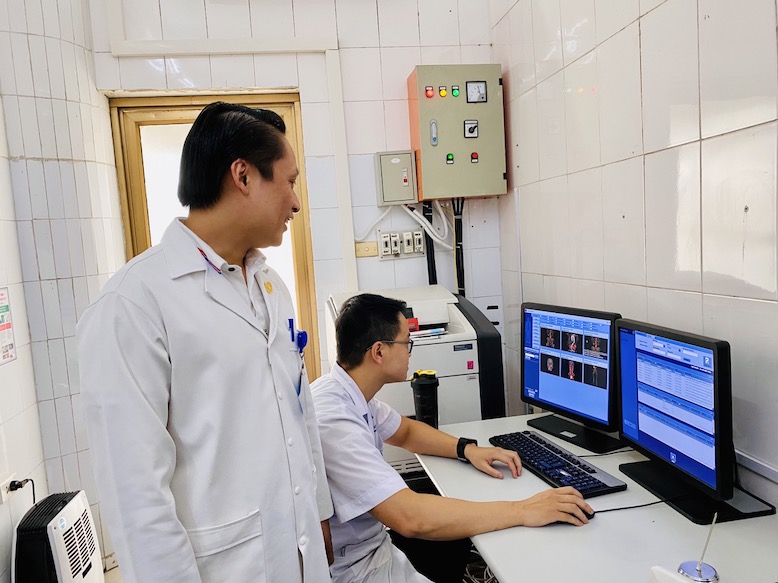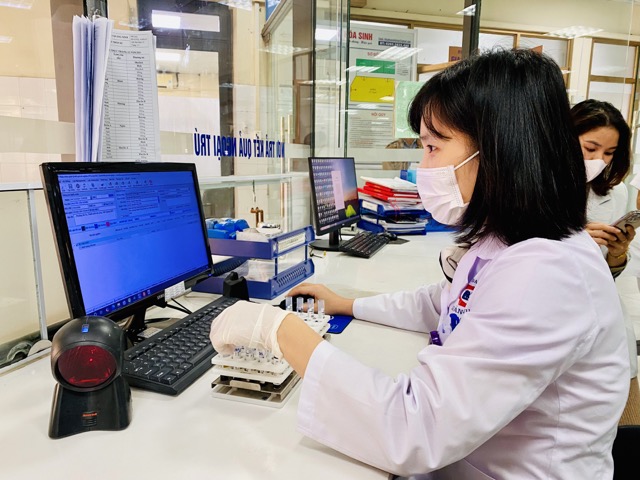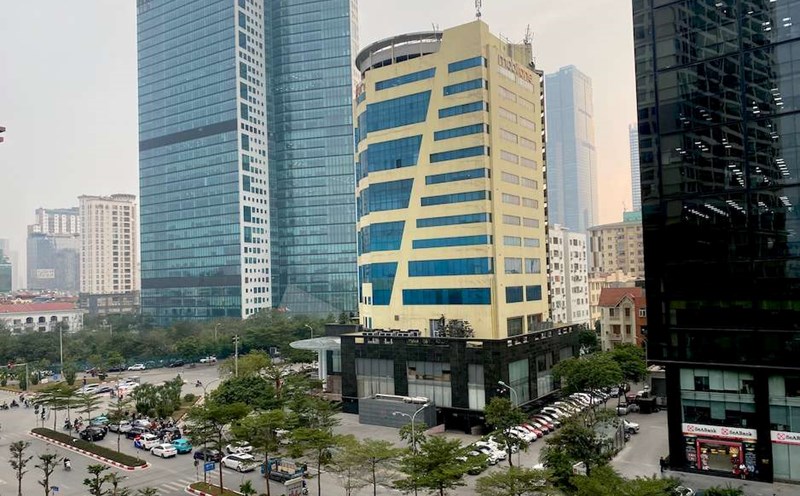Just 1-2 years ago, at Quang Ninh General Hospital, it was not uncommon for patients to have to come to the hospital at 4am to wait for examination.
Specialist II Doctor Nguyen Ba Viet - Director of Quang Ninh General Hospital - shared that he used to receive many phone calls from patients complaining about having to wait a long time when coming to the hospital for examination, complicated paperwork procedures, having to wait hours for X-ray results, and smelly hospital toilets... However, now, everything is different.
At the Department of Diagnostic Imaging, Quang Ninh General Hospital, patients come in for an X-ray, and just a few minutes later, the results and images of the patient are updated to the system. Doctors in the hospital department only need to look at the machine and read the results. Patients do not have to wait long.
Sharing with Lao Dong Newspaper reporters on December 4, specialist doctor I Ngo Quang Chuc - Head of the Department of Diagnostic Imaging - said that previously, the hospital had to print about 3,000 films/month, and the cost of buying films alone cost 1.5 billion VND per year. The treatment of film washing water is very complicated and expensive because the films are contaminated with lead. If not well controlled, this waste will cause poisoning and environmental pollution.
In addition, when still using paper records, hospitals must arrange warehouses to store patient records and data for decades.
Printing films is time-consuming and expensive, and consultation with other medical facilities is extremely difficult because the films must be sent to the location. The health of medical staff is also affected by constant exposure to film-developing chemicals...
"In fact, digital transformation brings many benefits to patients, doctors and medical facilities. Online consultations are also convenient and fast. Currently, doctors only need to scan the QR code to have all the patient's images and results on the system," Dr. Chuc shared.

"The hospital has to set aside hundreds of square meters, with 2-3 warehouses to store patient medical records, which according to regulations must be kept for at least 10 years. Not to mention the large amount of X-ray films, which must be transported and processed by a qualified unit. These warehouses are often damp, infested with rats, cockroaches, and insects, very dirty and unsanitary, and do not ensure fire safety in the hospital...", said Ms. Nguyen Thi Hai Thanh - Head of the Infection Control Department.
Convenient for patients, economical for hospitals
According to the leader of Quang Ninh General Hospital, if in early 2024, the rate of online appointment booking was only 15%, now when implementing the online appointment booking system, it has increased to 50%. Appointment booking is implemented via phone, Zalo, hospital website and mobile application.
Appointments are distributed evenly throughout the day, helping to limit local overload. Patients only need to arrive at the hospital 10 minutes before their appointment and do not have to buy a medical examination book if they do not need it. The medical examination and treatment process only requires a QR code to go through all departments and rooms.
"Patients, including my family members, come to the hospital without knowing anyone or asking for help to schedule an appointment or get an early scan. People can go to the hospital without bringing any documents," said Director Nguyen Ba Viet.
The hospital also uses electronic medical records and many other systems such as medical image archiving and communication (PACS), which helps reduce errors in data entry, coordinate health insurance payments and contribute to transparency in all medical examination and treatment activities.
Regarding the benefits of digital transformation, it not only helps patients benefit but also helps hospitals save costs on film printing and waste treatment.
With digital transformation, what makes patients most satisfied is that they can proactively understand the medical examination and treatment process without having to wait anxiously, not knowing when their turn will come or when the results will come.

Associate Professor, Dr. Tran Quy Tuong - Chairman of the Vietnam Medical Informatics Association - said that with PACS software when applied in Vietnam, the cost is only 50% of the value of the film. PACS, if deployed synchronously, will not only help medical facilities save costs, improve the quality of diagnosis but also protect the environment because there is no need to print films.
The leader of the Department of Health Environment Management (Ministry of Health) also stated that the digital transformation of healthcare has brought many benefits, convenience in medical examination and treatment, preventing plastic waste and helping the hospital environment to be clean and avoid infection.











